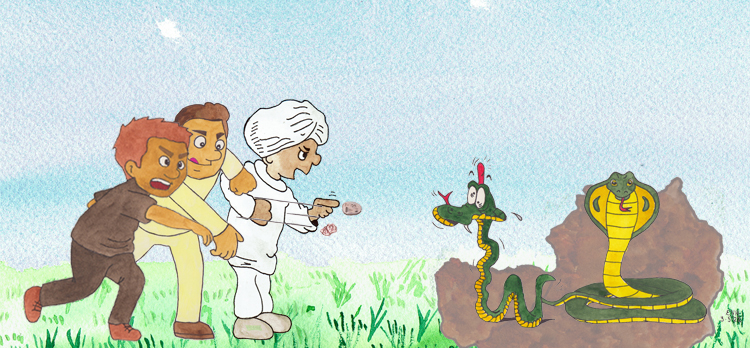
Jataka 304
Daddara Jātaka
The Story of Daddara
as told by Eric Van Horn
originally translated by H.T. Francis and R.A. Neil, Cambridge University
originally edited by Professor Edward Byles Cowell, Cambridge University
For me the most interesting point the Buddha makes is that when a person is “on a foreign shore” they lose their status. You may be very important in one context, but if you are removed from that context, it may mean nothing.
“O Daddara, who…” The Master told this story the Master while he was living at Jetavana. It is about a certain ill-tempered fellow. The circumstance has been already related before. On this occasion a discussion had arisen in the Dharma Hall of Truth about the passionate nature of the man. The Master arrived and asked what they were discussing. He was told by the monks the subject of their conversation. So he sent for the man and asked, “Is it true, brother, what they say, that you are passionate?” “Yes, my Lord, it is so,” he replied. Then the Master said, “Not now only, monks, but in the past as well this fellow was very ill-tempered. And owing to his passionate temper wise men of former days—even though they continued to lead perfectly innocent lives as Nāga princes—had to live on a filthy dunghill for three years.” And then he told them this story from the past.
(Nāgas are half human and half cobra.)
Once upon a time when Brahmadatta was reigning at Benares, the Daddara Nāgas lived at the foot of Mount Daddara in the Himālaya region. The Bodhisatta was reborn as Mahādaddara, the son of Sūradaddara, the King of that country. He had a younger brother named Culladaddara. The brother was passionate and cruel. He went about abusing and striking the Nāga maidens. When the Nāga King, heard of his cruelty, he ordered Culladaddara to be expelled from the Nāga world. But Mahādaddara convinced his father to forgive him, and so he saved his brother from expulsion. But then for a second time the King became angry with him, and again he was convinced to forgive him. But on the third occasion the King said, “You have prevented me from expelling this good-for-nothing fellow. Now both of you get out of this Nāga world and live for three years at Benares on a dunghill.”
So he drove them out of the Nāga country, and they went and lived at Benares. And when the village boys saw them looking for their food in a ditch that surrounded the dunghill, they struck them and threw clods and sticks and other missiles at them, and crying out, “What have we here—water lizards with big heads and tails like needles?” They shouted other words of abuse. But Culladaddara, by reason of his fierce and passionate nature, was unable to put up with such disrespect. He said, “Brother, these boys are mocking us. They don’t know that we are venomous serpents. I can’t stand their contempt for us. I will destroy them by the breath of my nostril.” And then—addressing his brother—he repeated the first stanza:
O Daddara, who such an insult could bear?
“Ho! frog-eating stick-i’-the-mud,” they cry.
To think that these poor harmless creatures should dare
A serpent with poisonous fang to defy!

Figure: Such abuse!
On hearing his words Mahādaddara uttered the rest of the stanzas:
An exile driven to a foreign shore
Must of abuse lay up a goodly store,
For where his rank and virtues none can know,
Only the fool his pride would care to show.
He who at home a “shining light” may be,
Abroad must suffer men of low degree.
So they lived there three years. Then their father recalled them home. And from that day their pride was overcome.
When the Master had brought his discourse to an end, he taught the Four Noble Truths at the conclusion of which the ill-tempered monk attained stream-entry. Then the Master identified the birth: “At that time the ill-tempered brother was Culladaddara, and I was Mahādaddara.”
